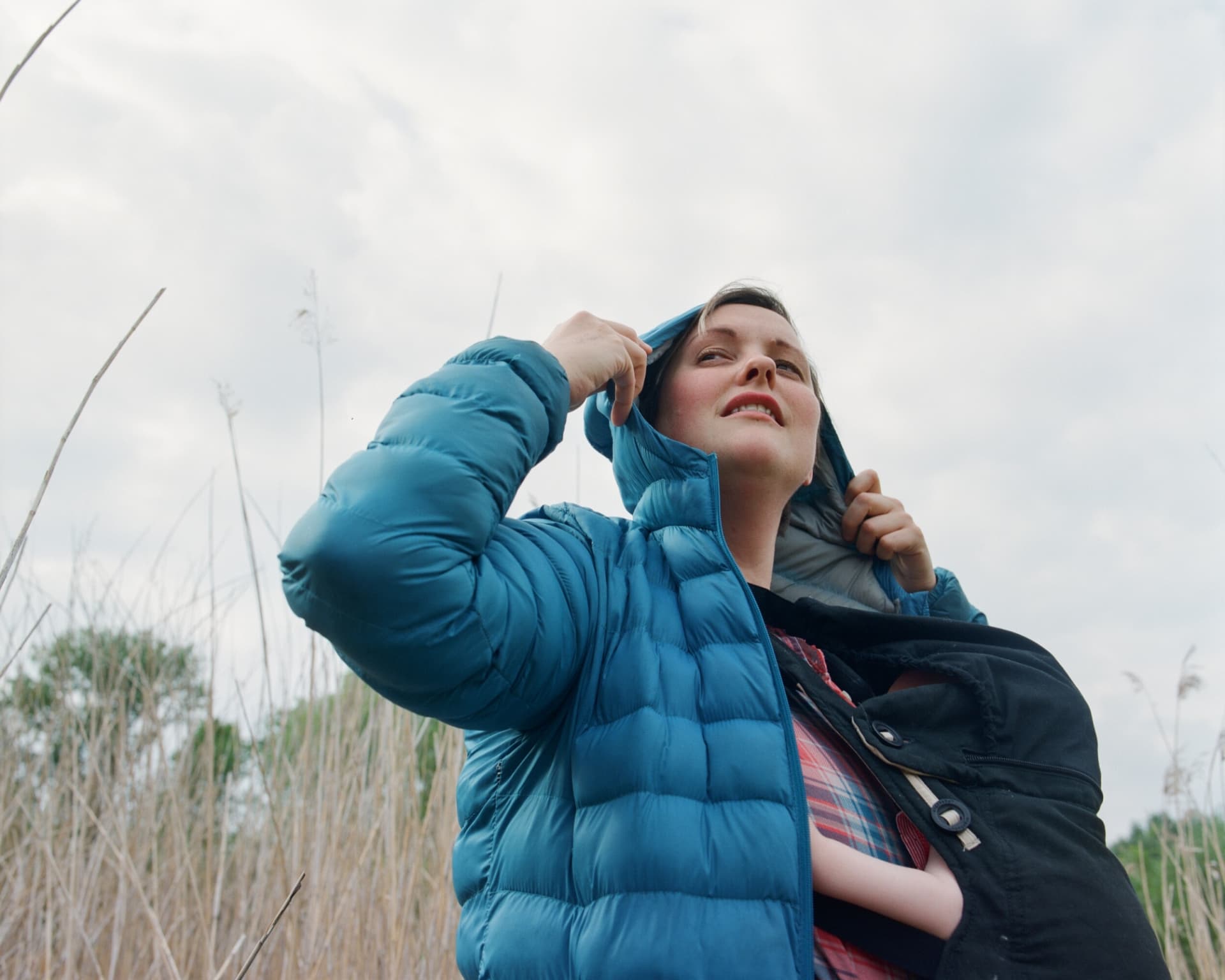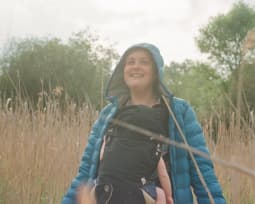Monday morning, and Josie Long confirms her weekend was lovely. Her sister came to visit and painted a thalassic mural in her 17-month-old daughter’s bedroom – “It was very wholesome.” The stand-up says her child is the most joyful aspect of her life, thinking back to before she gave birth, when she was travelling a lot for gigs.
“If I could fit in a jolly, I would do it, and I would try to perform abroad as much as I possibly could, so I was never really in the same place very much.” Now dinnertime, bath time and bedtime achieves “routine I’ve not really had for a long time. What amazes me is how fun and funny it is,” she resumes. “Every morning she wakes me up and she’s silly, has a little laugh, and she does things that are unexpected and new.” The kid messes around every evening when being put to bed, sometimes trying her mum’s patience, “but it’s so fun and stupid, and what I love is the regularity of it, the everyday nature of it, and the smallness of it. That brings so much joy.” The three-time Edinburgh Comedy Award nominee is also a lover of nature, hikes and wild swimming, which she can’t do as much as she’d like with a small person to look after. However, of the Scandinavian view that ‘there’s no such thing as bad weather, only bad clothes’, she wraps her daughter in a poncho and they head out on walks – during which “she sits down in puddles.”
Motherhood can of course generate new material for stand-up, but it’s also heightened her confidence when performing. “I just feel more capable onstage. Giving birth is like climbing a mountain, it’s like running ten marathons, it’s f*cking massive. So once you’ve done it you do feel, forever, really proud of yourself and really like, ‘Hahaha! These people can’t hurt me: I’ve brought life into the world.’ But I also think I feel more confident because I do not have the time and energy to f*ck about. Before I would have spent more time worrying or brooding but now – in evolutionary terms – I’ve reproduced, I’m basically on the way out, I’ve got to get sh*t done.”
Her new show, Tender, “answers the question: how do you bring somebody into the world when everyone’s telling you it’s the end of the world?” It covers her concerns over climate change and the future, she explains, alongside the fact she is now a mother. “It’s about how wonderful and cool it is to have a baby, but also how brutal and mind-bending it is to be sleep deprived, and having to adjust your head to the responsibility of being a parent – which is crazy and terrifying. So it’s kind of a balance between all of the big stuff, the scary stuff, and all of the joy.” Tender tries to get to an “optimistic and heartfelt” place, with viewers privy to the journey there.
I tell her optimism is also the theme of our January edition, and ask whether we’re both naïve to apply it to our work at the moment. “No, God, no,” she says recalling a Howard Zinn quote she used in connection to a previous show. “I’ll go and get you it,” she says, then reading down the phone:
To be hopeful in bad times is not just foolishly romantic. It is based on the fact that human history is a history not only of cruelty, but also of compassion, sacrifice, courage, kindness. What we choose to emphasize in this complex history will determine our lives. [If we see only the worst, it destroys our capacity to do something. If we remember those times and places – and there are so many – where people have behaved magnificently, this gives us the energy to act, and at least the possibility of sending this spinning top of a world in a different direction.] And if we do act, in however small a way, we don’t have to wait for some grand utopian future. The future is an infinite succession of presents, and to live now as we think human beings should live, in defiance of all that is bad around us, is itself a marvellous victory.
“Of course people are going to say it’s naïve to want to see the best in people,” she adds, “because there’s going to be people who want to dwell on the truly worst parts of humanity.” The nasty bits of life are just as real as the goods ones, she admits, “but in this life you have a certain amount of time and energy to focus, and a certain amount of opportunity to build, so why wouldn’t you try to be optimistic? It helps to be positive, and to be somebody who aspires for better. It helps you, your quality of life, and it helps those around you.”
Did it take her a long time to realise this? Fortunately, she says, the likes of Howard Zinn put it better than she can, supplying statements that she can just agree with. That said, “Temperamentally I’m the sort of person that wakes up and sees a new day and a new chance.” This is at odds with someone she used to go out with, who “would wake up and be like, ‘Oh god, this again.’ There’s something in your temperament that might make it easier or harder to be a certain way, and I think I’m lucky in that respect. At the same time, when Brexit happened I felt in deep grief. It took me a year to try to move on from that, to a place where I felt like I could be of use again, and positive again. Things hit me hard and it’s not easy to remain optimistic and it’s not easy not to be frightened, but in [Tender] there’s a bit where I just go, ‘Look, the game is rigged, and we all know the game is rigged, but unfortunately that is the game, so game on.’ As long as we’re here, we can try.”
With the show also about kindness, I wonder if she thinks compassion is most people’s default setting. “I do. I think it’s complicated; context warps people and life is long.” A decade of certain experiences could “gnarl and twist you up” thus affecting your default setting. “But everyone is more than capable of having lovely friendships, being in love, or having children and loving them. If you start on a personal level,” she says, “it does then help you to be kinder and more loving on a wider level.” If you get on the tube after a lovely meal with a friend, “you’re less inclined to be a prick to everyone on the tube because you’ve had a lovely time with someone you love.”
Our society, she reckons, could be organised in a way that better facilitates kindness and friendship. “If there were more opportunities to volunteer in the community, more opportunities for people to look after one another, they would gladly take them.” She is co-founder of Arts Emergency, the mentoring charity for disadvantaged young people wanting to study arts degrees and work in creative and cultural industries. They ask for donors, she says, “but the main thing that runs us is volunteers who want to become mentors to, and provide support for, young people. People are desperate to give, help and share.” The day before the 2019 general election is called, she says “people have more love and more good than they know what to do with, but it’s hard to find outlets due to the fact services have been cut right back, and societies that try to run things can’t really cope. The state could organise ways for people to be more connected, and we don’t live under a government that wants to do that.”
At the end of this month, Tender comes to Oxford, where she went to university, at first undergoing a “culture shock [which] for me was very big and real. I didn’t know much about the British class system until I got there and realised I was very near the bottom of it. It’s an unusual place, isn’t it? In some ways it’s the most wonderful, beautiful, privileged atmosphere I’ve ever been in.” As part of her academically intense English degree she was able to order 17th-century magazines from the Bodleian and become the first person to read them in 50 years, she could “study by the river, and meet all these exciting and unusual people and feel like I was in that difficult environment in a positive way. Other times it was hard and lonely,” she says before stating she wouldn’t change her time there for the world, and that the city doesn’t seem to have changed when she returns.
Elsewhere on her schedule, following her and Douglas King’s BIFA Discovery Award-nominated Super November (which toured cinemas in 2018), the pair “are developing a couple of film ideas and a couple of ideas for TV. That’s one of my big focuses: trying to use the team my friend and I have built up to make more cool stuff.” We can also expect more of the radio show she writes and presents for Radio 4, Short Cuts, and another stand-up show. “You’ve always got about ten things on the boil and you’re always hoping that one of them is going to absolutely go stellar, just hoping for the best.”
On saying goodbye, she describes herself as “very flattered” we thought of her for this issue. As a magazine about optimism goes, I think she’s the most stellar choice we could have made.
Josie Long brings Tender to the Old Fire Station, Oxford, 30-31 January, 8pm.










